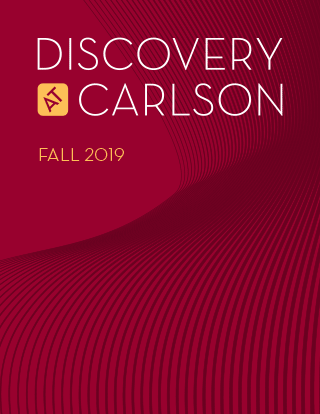
Associate Professor Xiaoji Lin Explains How Wages Impact a Company's Credit Risk
Friday, November 15, 2019
Does the amount of revenue that a company spends on employee wages—and the flexibility of adjusting those wages— affect the way credit markets gauge its potential for risk?
A new study conducted by Associate Professor Xiaoji Lin and fellow researchers say that not only is that the case, but that it’s as important as “traditional” factors.
“Wages owed to employees are, at the end of the day, a bill that needs to be paid,” says Lin. “Because of that, the greater percentage of revenue you owe to them, the riskier lenders view the business.”
Wages as leverage
In earlier research, Lin and his team examined the labor market’s implications for financial markets in general. But they wanted to specifically look at how labor contracts and rigidity make an impact.
The study included thousands of firms across dozens of countries, including the United States, Canada, major European states, Africa, and the Asia-Pacific region.
What they found was that wage obligations had a first-order effect on credit risk in the form of corporate bond yield or default probability.
“Our view is that wage bills that need to be paid are like leverage,” Lin explains. “Think of it like this: If you are obligated to pay employees a specific amount of money because of a labor contract and a recession hits, a company may see a drop in revenue—but the wage payment is a fixed amount. That causes a drop in profits, which increases risk. Perhaps only an interest payment can be made because of a shortage of cash, which further increases risk.
More wages, higher interest rate
Lin explains it like this: Wage bills should be viewed as leverage, because if they have been pre-committed through a labor contract, they cannot be altered if the company runs into financial trouble. So if a recession or other bump in the road hits, a larger portion of revenue will be required to cover wages, which could impact the ability to pay debt. This means creditors want a higher interest rate to go along with the higher risk.
“We basically show that labor wage bills are actually operating leverage that can amplify or make your financial payments, like debt, riskier,” says Lin.
Not only do greater wage obligations impact a company’s financial risk, but it appears the relationship works the other way as well. A company with high levels of debt is much less likely to increase wages or hire new employees.
We basically show that labor wage bills are actually operating leverage that can amplify or make your financial payments, like debt, riskier.
Reducing resources for innovation
Because of the relationship between wages and credit risk, countries that have stronger labor laws or higher union participation, such as those in Europe, end up being viewed as more financially risky than those with less-stringent standards.
In the long run, the findings indicate that stickier wages can have an impact on innovation.
“A company with higher labor risk is less able to invest in capital projects like new plants or equipment,” Lin says. “And while our research didn’t look at research and development, we’d likely see the same effect.”
